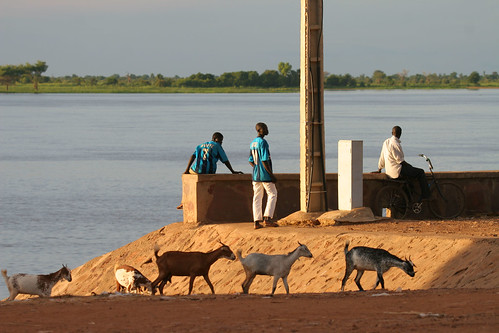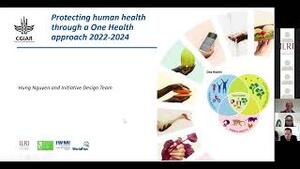
World Water Week seminar highlights the role of livestock in sustainable agriculture
World Water Week in Stockholm is organized annually by the Stockholm International Water Institute and brings together experts from around the world to discuss pertinent issues around water and development.
At the start of this year’s World Water Week, taking place from 28 August to 2 September 2016, the University of Gothenburg, the Swedish International Agricultural Network Initiative, the Swedish University of Agricultural Sciences and the Swedish Ministry of Enterprise and Innovation convened a seminar on antimicrobial resistance and linkages between humans, livestock and water in peri-urban areas.
Among the speakers at the seminar was Delia Grace, a veterinary epidemiologist and food safety expert at the International Livestock Research Institute (ILRI). Her presentation was based on a report published in July 2016 by the Committee on World Food Security High-Level Panel of Experts on Food Security and Nutrition. Grace was a member of the project team that wrote the report.
The presentation begins with an overview of the key role of the livestock sector in sustainable agricultural development and the global rise in demand for animal-source food, a phenomenon dubbed the ‘Livestock Revolution’. Some agriculture-associated challenges of livestock production are then discussed; these include antimicrobial resistance, foodborne diseases and zoonoses. Cross-cutting and specific recommendations to address these challenges are then put forward.
View the presentation: Sustainable agricultural development for food security and nutrition: what roles for livestock?





















